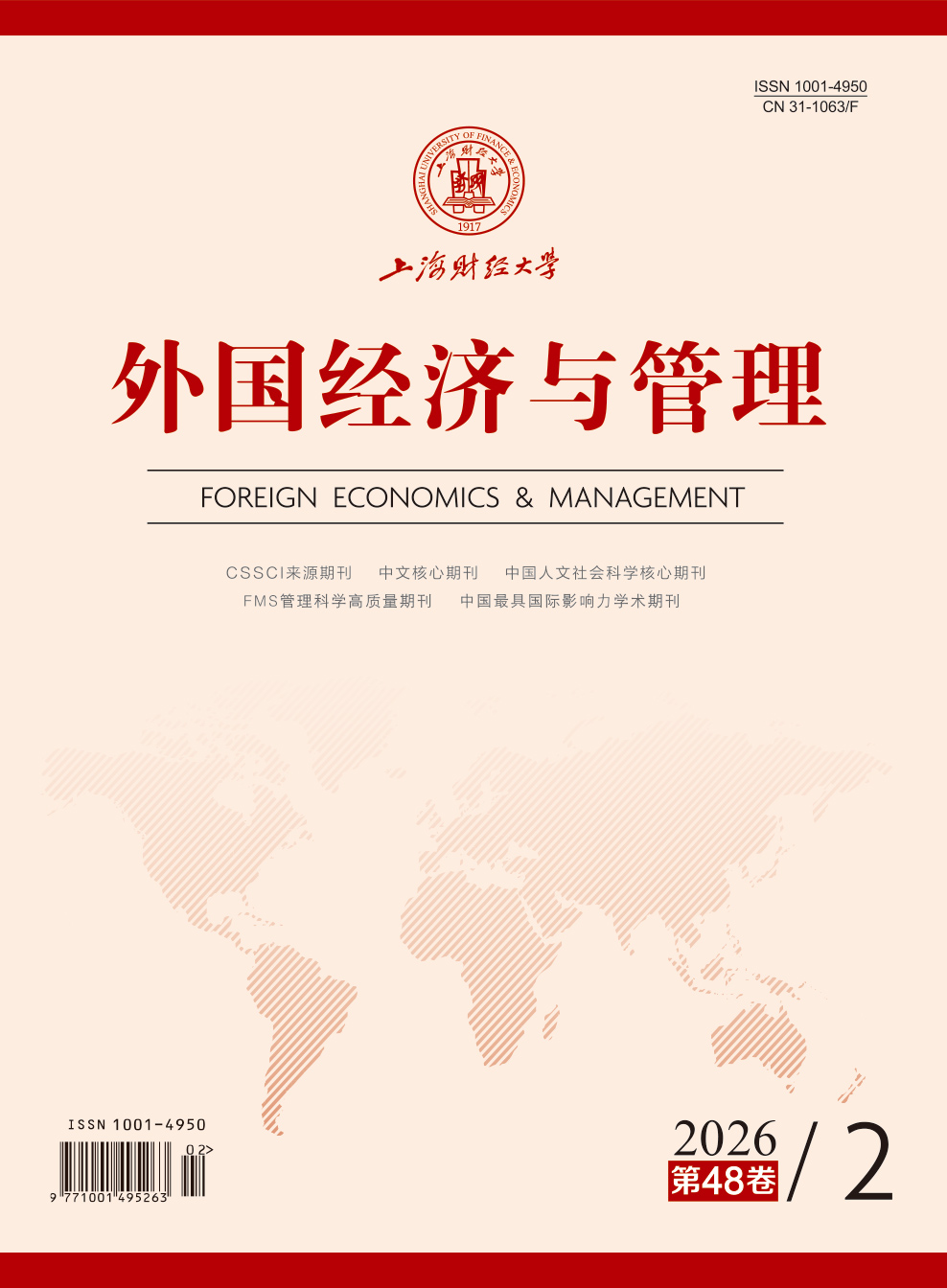制度创业是制度理论前沿议题并具有高度切题性。现有文献过于强调宏观现象描述而缺乏探究制度创业发起的微观过程,导致片面突出行为者的利益及反思而忽略了非理性要素的作用。基于社会认同理论和制度研究的情感视角,本文对中国经济转型时期H镇产业集群内的地方制度开展质性研究,揭示了制度创业中行为者产生能动性的微观过程。研究发现:(1)基于理性反思的效率计算仍然是发起制度创业的基本动机,本文为此提供微观证据;(2)除此之外,行为者还通过社会比较、威胁主导社会认同、归属主导社会认同来寻求并维持制度中的社会身份,这是产生能动性的关键前置环节和全新路径;(3)这条路径背后,行为者通过情感胜任表现(体验和表现社会身份中的情感)和情感性意义建构(带着社会身份中的情感赋予新制度意义)两个情感机制发起制度创业,这是连接社会认同和变革能动性的深层原因。本文不仅回应了制度理论的微观基础和情感要素研究号召,也从微观视角为中国转型经济的制度变革实践提供了启示。
制度创业中的社会认同及其情感机制:H镇产业集群的质性研究
摘要
参考文献
1 尤树洋, 杜运周, 张祎. 制度创业的概念述评、量化分析与研究展望[J]. 管理学报,2015, (11): 1718-1728 DOI:10.3969/j.issn.1672-884x.2015.11.020
2 Ansari S, Phillips N. Text me! New consumer practices and change in organizational fields[J]. Organization Science,2011, 22(6): 1579-1599 DOI:10.1287/orsc.1100.0595
3 Ashforth B E, Harrison S H, Corley K G. Identification in organizations: An examination of four fundamental questions[J]. Journal of Management,2008, 34(3): 325-374 DOI:10.1177/0149206308316059
4 Ashforth B E, Schinoff B S, Rogers K M. " I identify with her”, " I identify with him”: Unpacking the dynamics of personal identification in organizations[J]. Academy of Management Review,2016, 41(1): 28-60 DOI:10.5465/amr.2014.0033
5 Battilana J, D’Aunno T. Institutional work and the paradox of embedded agency[A]. Lawrence T, Suddaby R, Leca B. Institutional work: Actors and agency in institutional studies of organizations[M]. Cambridge: Cambridge University Press, 2009: 31–58.
6 Battilana J, Leca B, Boxenbaum E. How actors change institutions: Towards a theory of institutional entrepreneurship[J]. Academy of Management Annals,2009, 3(1): 65-107 DOI:10.5465/19416520903053598
7 Child J, Lu Y, Tsai T. Institutional entrepreneurship in building an environmental protection system for the People’s Republic of China[J]. Organization Studies,2007, 28(7): 1013-1034 DOI:10.1177/0170840607078112
8 Creed W E D, DeJordy R, Lok J. Being the change: Resolving institutional contradiction through identity work[J]. Academy of Management Journal,2010, 53(6): 1336-1364 DOI:10.5465/amj.2010.57318357
9 DiMaggio P J. Interest and agency in institutional theory[A]. Zucker L. Institutional patterns and organizations[M]. Cambridge, MA: Ballinger, 1988: 3–22.
10 Du Y Z, Kim P H, Aldrich H E. Hybrid strategies, dysfunctional competition, and new venture performance in transition economies[J]. Management and Organization Review,2016a, 12(3): 469-501 DOI:10.1017/mor.2016.30
14 Glynn M A. When cymbals become symbols: Conflict over organizational identity within a symphony orchestra[J]. Organization Science,2000, 11(3): 285-298 DOI:10.1287/orsc.11.3.285.12496
15 Glynn M A. Beyond constraint: How institutions enable identities[A]. Greenwood R, Oliver C, Suddaby R, et al. The SAGE handbook of organizational institutionalism[M]. London: SAGE, 2008: 413–430.
16 Greenwood R, Raynard M, Kodeih F, et al. Institutional complexity and organizational responses[J]. Academy of Management Annals,2011, 5(1): 317-371 DOI:10.5465/19416520.2011.590299
17 Greenwood R, Suddaby R. Institutional entrepreneurship in mature fields: The big five accounting firms[J]. Academy of Management Journal,2006, 49(1): 27-48 DOI:10.5465/amj.2006.20785498
18 Holm P. The dynamics of institutionalization: Transformation processes in Norwegian fisheries[J]. Administrative Science Quarterly,1995, 40(3): 398-422 DOI:10.2307/2393791
19 Jarvis L C. Feigned versus felt: Feigning behaviors and the dynamics of institutional logics[J]. Academy of Management Review,2017, 42(2): 306-333 DOI:10.5465/amr.2014.0363
20 Lawrence T B, Suddaby R, Leca B. Institutional work: Actors and agency in institutional studies of organizations[M]. Cambridge: Cambridge University Press, 2009.
22 Maitlis S, Christianson M. Sensemaking in organizations: Taking stock and moving forward[J]. Academy of Management Annals,2014, 8(1): 57-125 DOI:10.5465/19416520.2014.873177
23 Marquis C, Lounsbury M. Vive la résistance: Competing logics and the consolidation of U. S. community banking[J]. Academy of Management Journal,2007, 50(4): 799-820 DOI:10.5465/amj.2007.26279172
24 Nee V, Opper S. Capitalism from below: Markets and institutional change in China[M]. Cambridge: Harvard University Press, 2012.
25 Powell W W, Colyvas J A. Microfoundations of institutional theory[A]. Greenwood R, Oliver C, Suddaby R, et al. The SAGE handbook of organizational institutionalism[M]. London: SAGE, 2008: 276–298.
26 Rao H, Monin P, Durand R. Institutional change in toque Ville: Nouvelle cuisine as an identity movement in French gastronomy[J]. American Journal of Sociology,2003, 108(4): 795-843 DOI:10.1086/367917
27 Santos F M, Eisenhardt K M. Constructing markets and shaping boundaries: Entrepreneurial power in nascent fields[J]. Academy of Management Journal,2009, 52(4): 643-671 DOI:10.5465/amj.2009.43669892
28 Seo M G, Creed W E D. Institutional contradictions, praxis, and institutional change: A dialectical perspective[J]. Academy of Management Review,2002, 27(2): 222-247 DOI:10.5465/amr.2002.6588004
29 Strauss A, Corbin J. Basics of qualitative research: Techniques and procedures for developing grounded theory[M]. 2nd ed. Thousand Oaks, CA: SAGE, 1998.
30 Tajfel H. Social categorization, social identity and social comparison[A]. Tajfel H. Differentiation between Social Groups: Studies in the social psychology of intergroup relations[M]. London: Academic Press, 1978: 61–76.
31 Thornton P H, Ocasio W, Lounsbury M. The institutional logics perspective: A new approach to culture, structure and process[M]. New York: Oxford University Press, 2012.
32 Tracey P, Phillips N, Jarvis O. Bridging institutional entrepreneurship and the creation of new organizational forms: A multilevel model[J]. Organization Science,2011, 22(1): 60-80 DOI:10.1287/orsc.1090.0522
34 Voronov M, Weber K. The heart of institutions: Emotional competence and institutional actorhood[J]. Academy of Management Review,2016, 41(3): 456-478 DOI:10.5465/amr.2013.0458
35 Weick K E. Sensemaking in organizations[M]. Thousand Oaks, CA: SAGE, 1995.
36 Weick K E, Sutcliffe K M, Obstfeld D. Organizing and the process of sensemaking[J]. Organization Science,2005, 16(4): 409-421 DOI:10.1287/orsc.1050.0133
引用本文
尤树洋, 贾良定. 制度创业中的社会认同及其情感机制:H镇产业集群的质性研究[J]. 外国经济与管理, 2018, 40(9): 3-17.
导出参考文献,格式为:





 , 2
, 2 8916
8916  12818
12818

